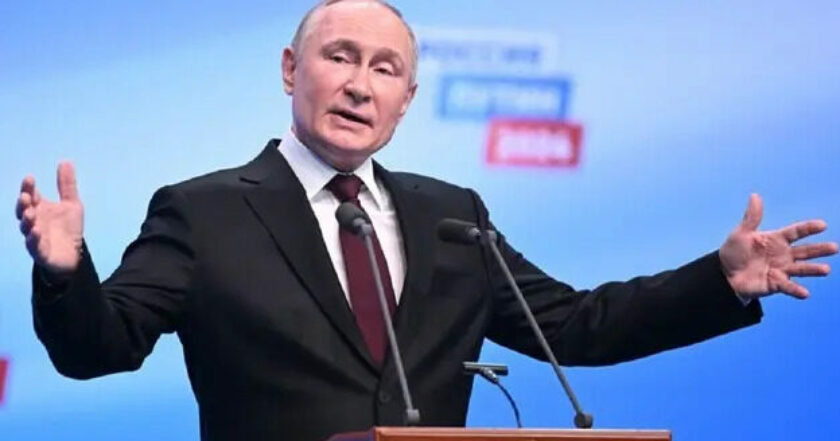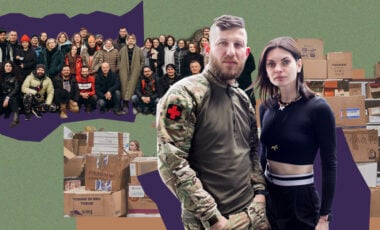Kremlin leader asserts no territorial concessions from Russia – ISW

Experts from the Institute for the Study of War (ISW) note that statements by Russian dictator Vladimir Putin and Kremlin officials signal that Russia retains "maximalist territorial ambitions and is unwilling to make territorial concessions."
The Institute for the Study of War (ISW) reports this.
Analysts emphasize that Vladimir Putin and Russian senior officials continue to reject the terms of negotiations proposed by the United States and demand that Ukraine give up territories that Russia does not occupy.
In his address to the board of the Federal Security Service (FSB) on February 27, Putin stated that Russia would continue to intensify FSB operations in the Donbas and the so-called "Novorossiya."
On February 27, Kremlin spokesman Dmitry Peskov also stated that Donbas and "Novorossiya" are an "integral" part of Russia.
The review notes that Putin and other Russian officials have previously defined so-called "Novorossiya" as all of eastern and southern Ukraine (including Kharkiv, Dnipropetrovsk, Odesa, and Mykolaiv regions). However, its exact borders are disputed even among Russian ultranationalists.
Putin has previously demanded that Ukraine hand over Donetsk, Luhansk, Kherson, and Zaporizhzhia regions, although Russian forces have not occupied significant parts of Donetsk, Kherson, and Zaporizhzhia regions.
Putin and other Russian officials have regularly indicated that they seek territorial gains beyond the administrative borders of these four illegally occupied regions.
"Renewed official Russian statements that the invented region of "Novorossiya" is part of Russia indicate that Putin maintains his maximalist territorial ambitions and is unwilling to offer territorial concessions," the ISW report says.
The review notes that Russian forces have now occupied a small part of the Kharkiv region and the Kinburn Spit in the Mykolaiv region and are trying to advance to the border with the Dnipropetrovsk region. The Kremlin may use Russia's occupation of limited territory in these areas as a false pretext to demand that Ukraine give up even more territory.
"ISW continues to assess that Putin remains uninterested in good-faith negotiations that require compromises and thinks that he can achieve his war objectives militarily in the medium- to long-term," the ISW analysts note.
Experts recall that US Secretary of State Marco Rubio said on February 26 that if Russia "makes maximalist demands that it knows cannot be met," the United States will know that Putin is not "serious" about participating in the negotiations.
US President Donald Trump reiterated on February 26 that Russia will have to make concessions in the peace talks, and reiterated on February 27 that the United States "will certainly try to return as much [territory – ed.] as possible back [to Ukraine – ed.]."
"Kremlin guidelines to Russian state media about coverage of recent US–Russian meetings indicate Russian President Vladimir Putin's determination to manipulate US President Donald Trump and divide the West," experts say.
ISW key findings:
- Russian President Vladimir Putin and senior Russian officials continue to reject US negotiating terms and demand that Ukraine surrender territory that Russia does not occupy.
- Kremlin guidelines to Russian state media about coverage of recent US–Russian meetings indicate Russian President Vladimir Putin's determination to manipulate US President Donald Trump and divide the West.
- The US and Russian delegations met in Istanbul, Türkiye, on February 27 to continue discussing US–Russian bilateral diplomatic relations.
- The Kremlin is reportedly continuing to push the United States to accept economic benefits that are unrelated to the war in Ukraine in return for Ukrainian and Western concessions that are related to the war.
- North Korea reportedly recently deployed additional troops to the Kursk region as North Korea continues to expand its military capabilities through cooperation with Russia.
- Ukrainian forces recently advanced near Toretsk and Pokrovsk, and Russian troops recently advanced near Pokrovsk, Kurakhove, and Velyka Novosilka.
It should be noted that US President Donald Trump believes that Russian leader Vladimir Putin will "keep his word" and not attack again after concluding a peace agreement with Ukraine.
It is worth adding that the US presidential administration's plans include reaching an agreement on a ceasefire in Ukraine by Easter, which will be celebrated on April 20.
At the same time, President Zelensky stated that a ceasefire in Ukraine would not be possible without security guarantees for Kyiv.






















































